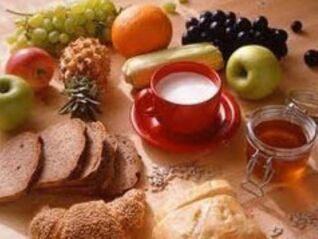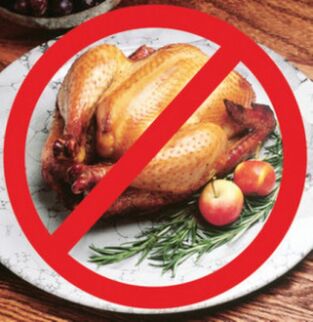Pancreatitis is a long-term and complex disease of the pancreas with multifactorial causes. One of them: a sharp violation of the norms of consumption of fatty foods, overeating, alcohol dependence. Adherence to special dietary rules for pancreatitis is half the success of treatment.
The diet for pancreatitis is designed to replace and supplement the menu with those substances that are poorly treated due to lack of enzymes in the pancreas.
Some patients believe that nutritional therapy for pancreatitis does not differ from diet 5a and continue to follow its recommendations. This is understandable because most initially received long-term treatment for cholecystitis, gallstone disease or hepatitis. They are well known in Tables 5a and 5, which set out the necessary nutritional standards for these diseases.
However, if pancreatitis is detected, diet 5a should be changed. Changes that occur when the pancreas is damaged require correction of the content of proteins, fats and carbohydrates. The diet for patients with pancreatitis is called "5p". It has increased the protein content up to 150 g (in No. 5 100-120 g), reduced the amount of fat (in No. 5 at least 70 g) and carbohydrates (in No. 5 at least 300 g). The rules for cooking and restricting the choice of food remain common.
Basic Dietary Requirements
The proposed dietary rules No. 5p do not exclude the use of concomitant diseases of the digestive system. They are important for creating maximum reading of the pancreas.

- Cook food only cooked, stewed, baked or steamed. The frying method is completely forbidden.
- Be aware that the damaged organ is saved by painting all dishes in the most acute stage of the disease.
- Moderate temperature is required (no sharp fluctuations from cold to hot).
- It is necessary to feed the patient with small amounts of food, but after every 3-4 hours.
- Avoid hearty disposable meals, and eat too much even diet meals.
- Maintain a daily calorie intake of at least 3000 kcal.
According to Povzner, recommended diet tables take into account the possibility of periods of aggravation and then when the pain has disappeared, but it is very important to maintain and continue proper nutrition in pancreatitis.
5p diet option for aggravating pancreatitis
Clinical manifestations of acute and chronic pancreatitis in the exacerbation phase (sharp pain, vomiting, nausea, diarrhea) do not allow the patient to eat in the usual way. The treatment regimen requires complete fasting for two to four days. You can not drink either; in the first days, the fluid is injected intravenously.
After cessation of vomiting and pain, an initial 5p diet is prescribed. Its goal is to reduce the formation of stomach acid and enable the pancreas to concentrate all its forces on the process of survival.
The diet allows a period of use of not more than two weeks, as its composition is not balanced (proteins are reduced to 60 g, fat up to 50 g, carbohydrates up to 200-280 g, with a total caloric content of 1800 kcal). Of course, bed rest and lack of physical activity are recommended.
The menu in the diet table of a patient with pancreatitis consists of mushy mucous grain soups, liquid grains in water (semolina and rice are excluded), vegetable puree or carrots with the addition of courgette, boiled pumpkin (cabbage in all forms is excluded), jelly, jelly, pudding, a few white biscuits. Everything is served and cooked without oil. You can drink water up to 2 liters, rosehip broth, a little sweet weak tea. After this option, they switch on the recommendation of one doctor to the other type of food.
Diet without exacerbation of pancreatitis
The onset of an effective recovery process is assessed based on the normalization of temperature, a decrease in the frequency of diarrhea and the absence of pain. The diet for pancreatitis is expanded, but the maximum standards for proteins, fats and carbohydrates are met. It is necessary to include a vitamin set in the current therapeutic diet to activate the body's defenses. The patient will have to adhere to this diet all his life.
Diet for pancreatitis categorically prohibits:

- fatty meats, fish and rich vegetarian soups (with cabbage or mushrooms)
- fatty meats of beef and pork, duck;
- lard and cooking oil;
- smoked meats, hot snacks, sauces, preserves, sausages;
- rich pastries, culinary products with cream, chocolate, pies, black bread;
- from vegetables, diet for pancreatitis does not recommend radishes, cabbage, turnips, sorrel, spinach;
- carbonated beverages, beer, alcohol, coffee.
Recommended Products and Meals:
- dried white bread or croutons, dry biscuits
- steamed, oven-baked, lean meat and poultry dishes, meatballs, meatballs and meat stews;
- cereal soups with noodles you can season with sour cream;
- non-sour cottage cheese, hard cheese varieties;
- butter or vegetable oil should be added directly to the plate, no more than one tablespoon a day;
- semi-liquid porridge, boiled in water or diluted milk
- unsweetened baked apples, jellies or fruit compotes
- lightly brewed tea with milk or wild rose in broth, lightly sweetened.
The remission pancreatitis diet recommends the following sample menu for a working person for the day:
- Breakfast before work - you can make a steam protein omelette from two eggs or half a serving of oatmeal in milk, tea with milk.
- Breakfast # 2 (at lunchtime) - take cooked meat with mashed potatoes or vegetables, half a packet of cottage cheese, if it is possible to heat it in the microwave at work, be sure to use it.
- Light sweet tea.
- Lunch (at home after work) - vegetarian potato soup half a plate, steamed meatballs with vegetable puree, apple jelly on xylitol.
- Dinner - a piece of boiled chicken, cottage cheese casserole, tea with milk.
- At night (no later than 21 hours) fruit jelly on xylitol.
It is possible to take unpolished vegetables and fruits as well as only expand the diet by appointment with a doctor after an examination to ensure that the enzymatic activity of the pancreas is restored and that there is no inflammation.

































































